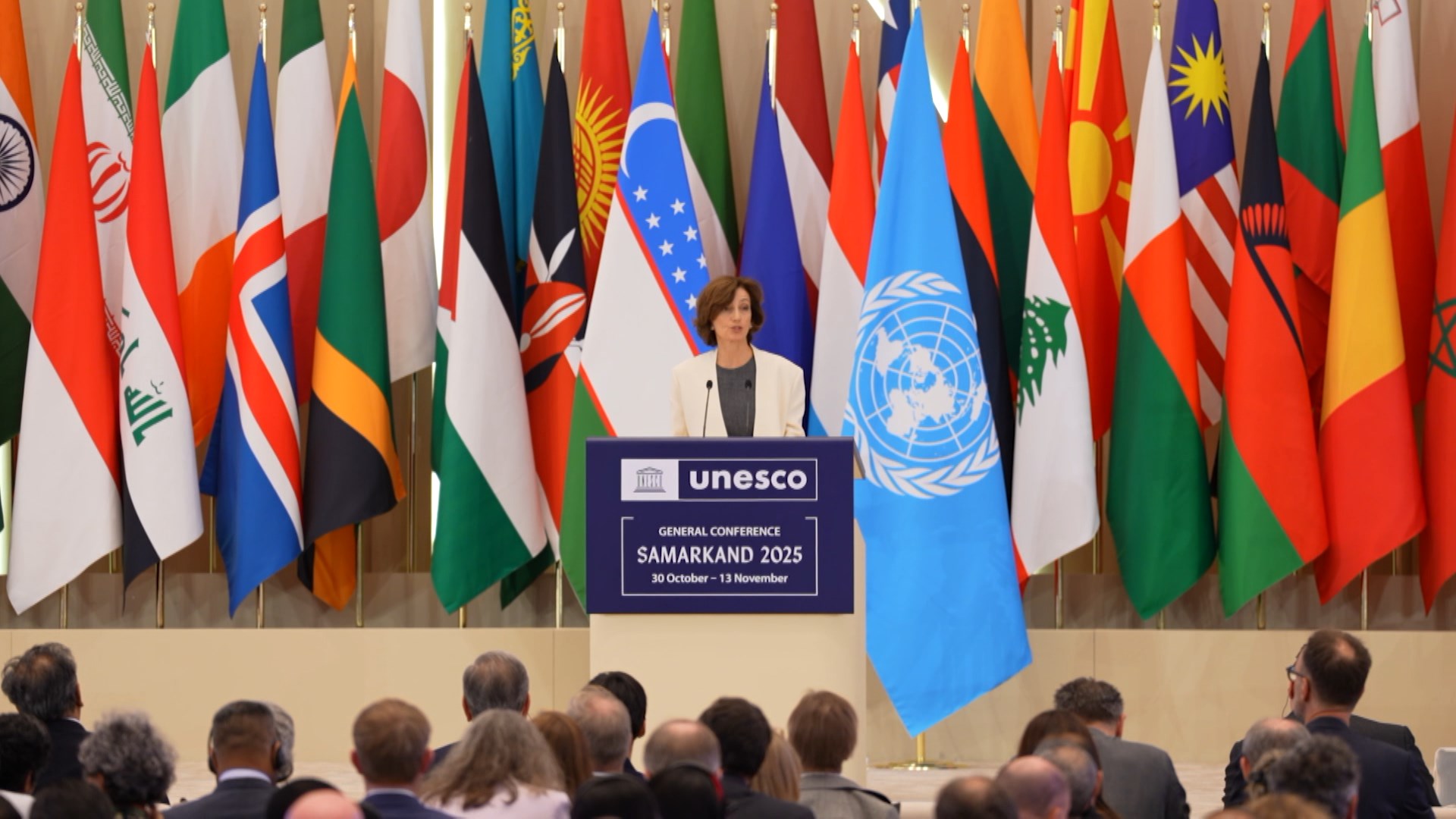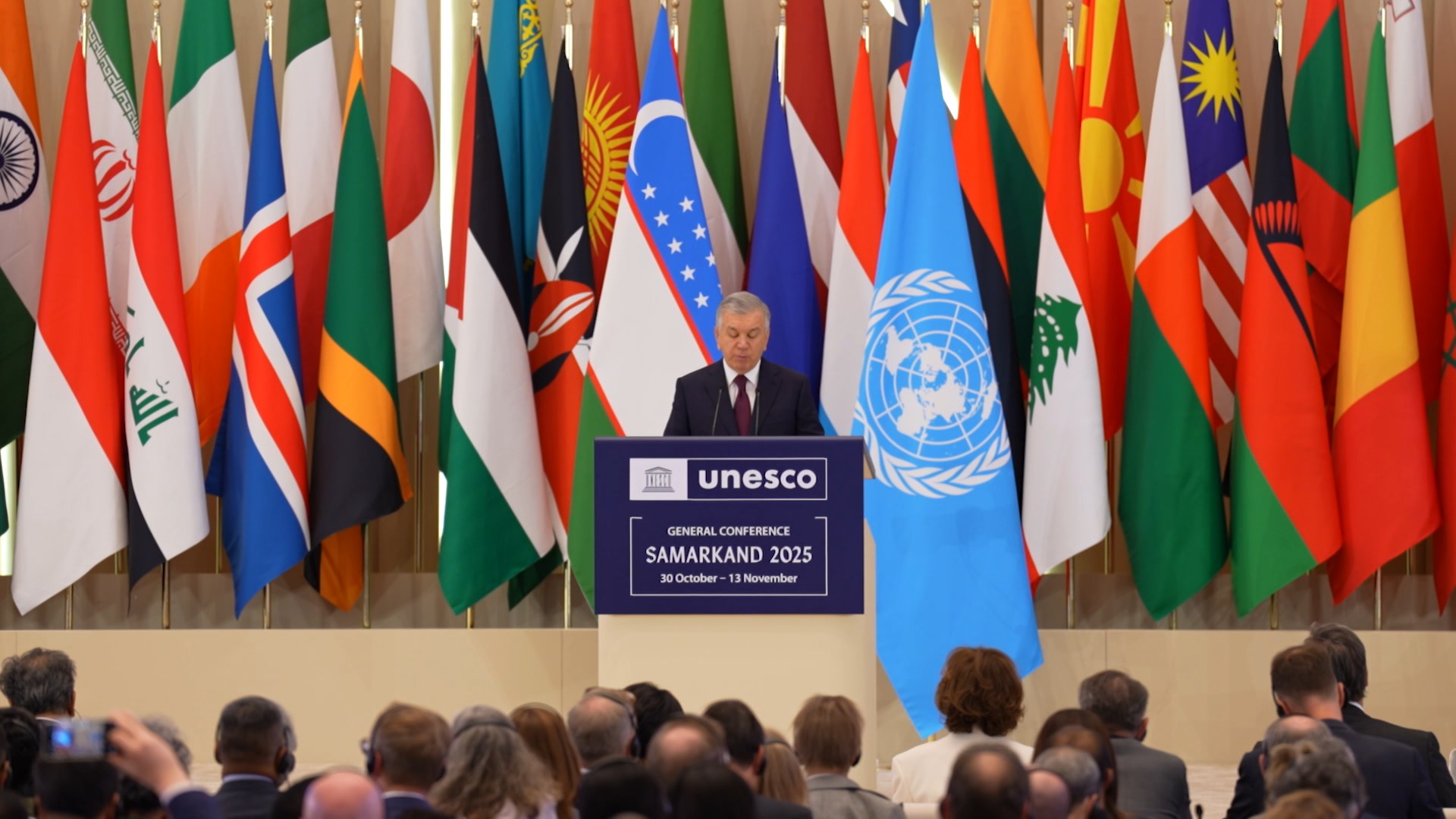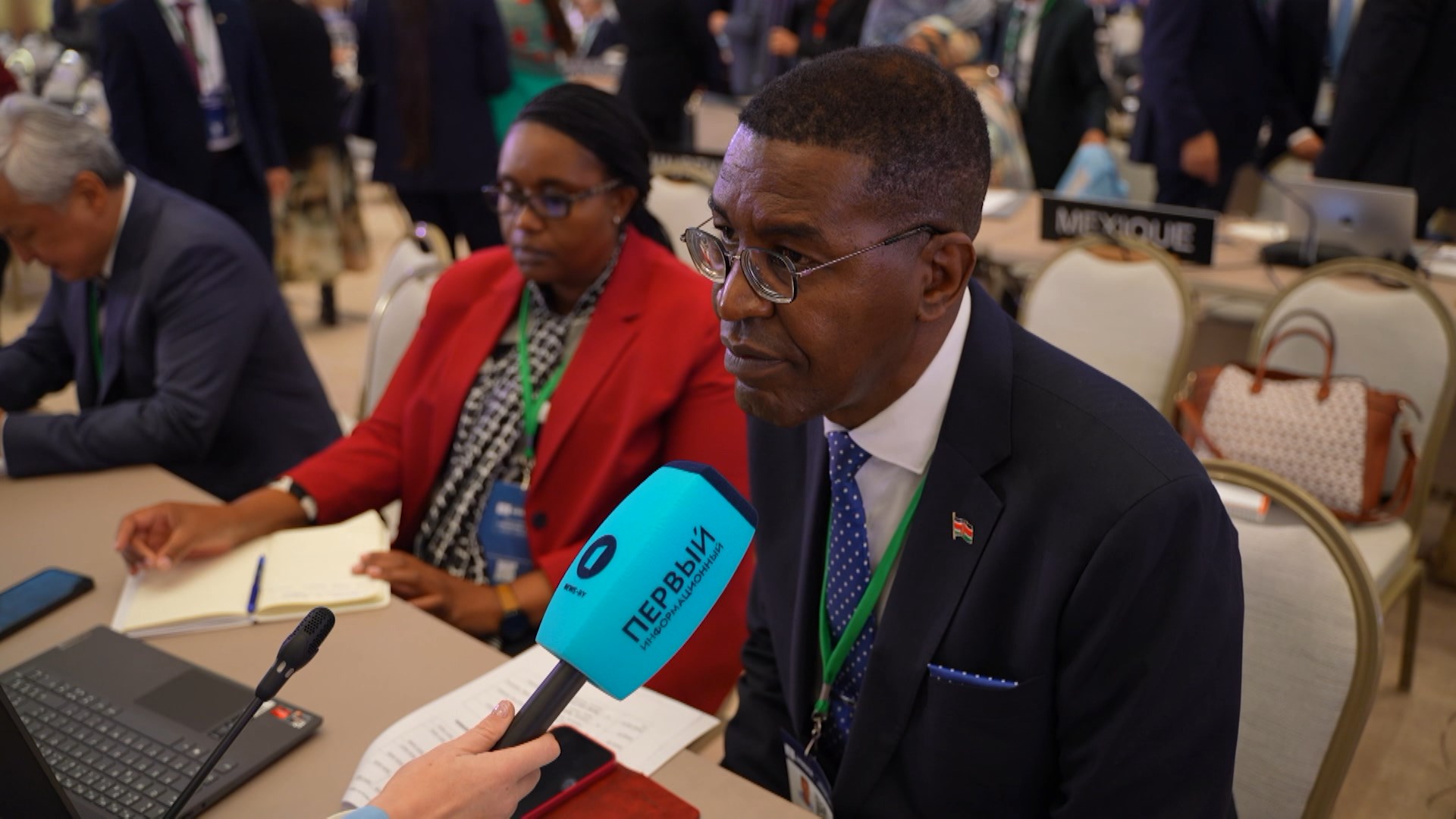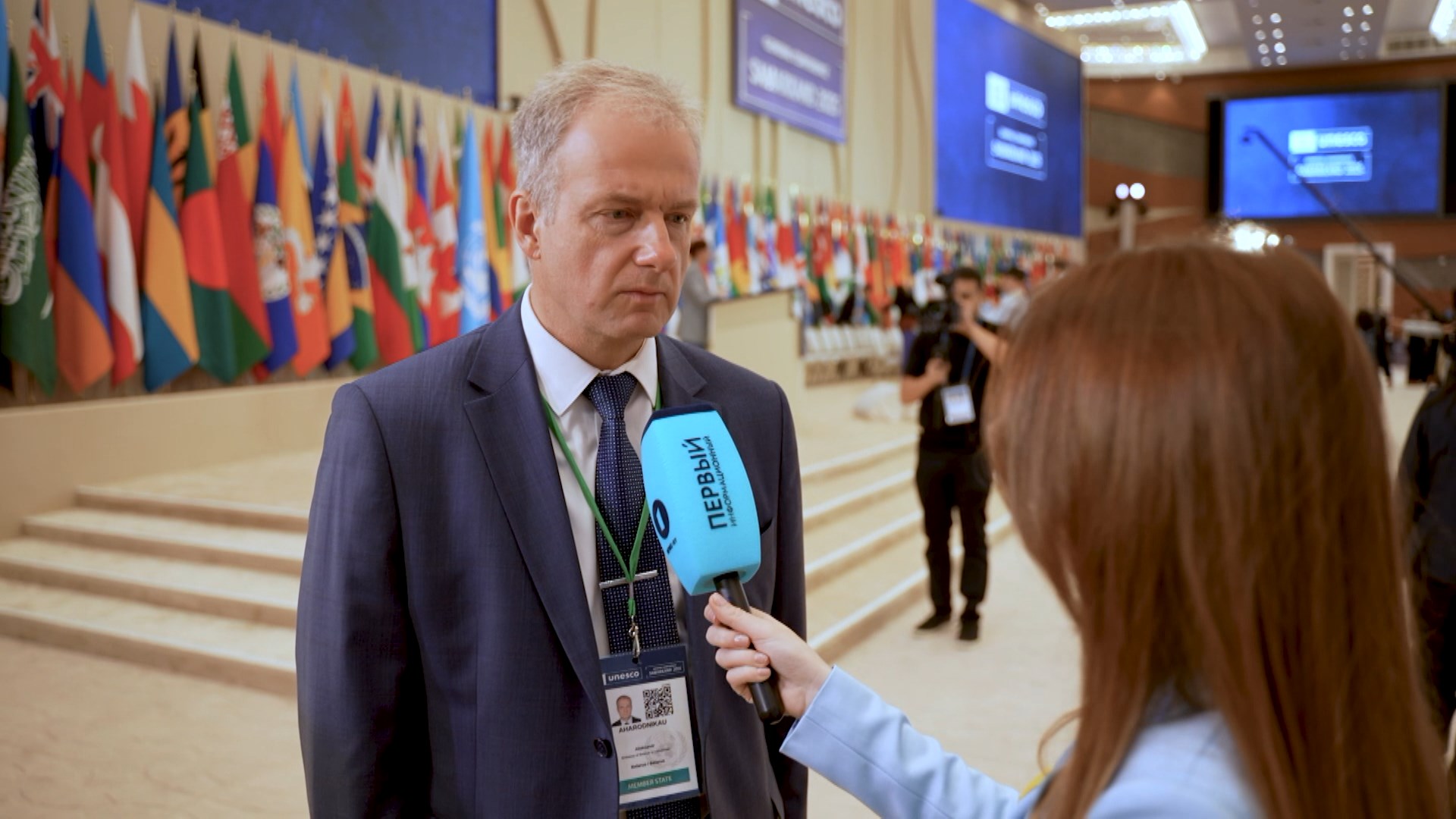3.71 BYN
2.95 BYN
3.44 BYN
UNESCO General Conference in Uzbekistan: Education, AI, and Urban Regeneration High on the Agenda
Forty years later, the UNESCO General Conference is being held away from its headquarters in Paris, hosted by Uzbekistan. Around 5,000 participants from 190 countries gathered in Samarkand, more than at the previous meeting. The General Conference is held every two years, and the representative of Belarus will speak on November 1.
All morning, the buses were polished, the paths were cleared, and everything was swept clean. It seemed as if there was no longer a speck of dust left. All logistics were well thought out, and the volunteers were trained. The whole world came to a standstill in Samarkand for two weeks. In the main hall alone, simultaneous translation was provided in seven languages. Presidents, ambassadors, ministers, and international organizations were present. The main venue was the Silk Road Congress Hall.
Furthermore, the complex has experience hosting high-level events. In September 2022, the Shanghai Cooperation Organization summit was held here. Eight hotels were located on the site, each with two presidential suites. The entire hotel inventory in Samarkand was dedicated to the UNESCO conference. The session coincided with the 80th anniversary of the organization's founding on November 16th. Organizational matters were resolved before lunch – the chairperson and deputy chairperson were elected, and the agenda was approved.
Audrey Azoulay, Director-General of UNESCO:
"UNESCO has increased its resources by almost $800 million over the past eight years. An increase of more than 80%. A significant portion of the additional funds came from voluntary contributions. The financial stability achieved has enabled the organization to implement some of the largest projects in its history. The comprehensive program to rebuild the old city of Mosul in Iraq has created thousands of jobs, resumed education for more than 120,000 schoolchildren, and restored historical monuments."

In Afghanistan, the focus is on supporting education for girls and women. UNESCO advocates for gender equality, and 20% of its budget is dedicated to this. This topic will continue to receive significant attention.
Uzbekistan, for example, proposed hosting the Global Women's Forum and the World Summit on Vocational Education. Shavkat Merziyoyev sees the education of the younger generation among the organization's priorities. The country is actively implementing artificial intelligence in education. Ethics in AI will be discussed later on the sidelines of the conference.
Shavkat Merziyoyev, President of Uzbekistan:
"As a result of geopolitical tensions and military conflicts around the world, great damage is being inflicted on unique monuments, sacred sites, and priceless cultural heritage. The gap in access to knowledge, technology, and digital resources is growing between countries. As a result, inequality of opportunity and poverty are increasing. This complex situation requires even greater unity to fully realize UNESCO's core missions."

The General Conference on October 30 began with a moment of silence in memory of those killed by Hurricane Melissa, which devastated the Caribbean. Jamaica and Cuba have been declared disaster zones. Thousands of evacuees, destroyed homes, flooded cities—this is the most powerful hurricane in decades.
Bernardine Ascien, Director of Internal Oversight Services and Chief Auditor of UNESCO:
"I think this event is another reminder to the global community of the real threat climate change poses to the entire world. Everything is in our hands. Speaking of other challenges, as you can see, artificial intelligence is shaping the world. Therefore, it is important for UNESCO and its Member States to promote the use of AI and neurotechnology in the service of humanity. They should not be directed against humanity, but rather used wisely, so that they serve the common purpose of this humanity, for everyone to see."
Peter Ngure, Kenya's Ambassador to UNESCO:
"We are delighted to be here in Samarkand, and we have many initiatives to work on, particularly in education and oceanography, where we are actively involved. We will also be presenting our developments on issues related to artificial intelligence. Kenya is a leader in artificial intelligence in Africa, and we are developing this and other emerging technologies, such as synchrotron radiation and neurotechnology. Furthermore, we have come to support the African Group by offering various leadership positions from this year until 2027."

Belarus will present its presentation on November 1; the country has been a member of UNESCO since 1954.
Alexander Ogorodnikov, Ambassador of Belarus to Uzbekistan:
"There could be a great many topics for discussion at this venue. It would seem to be full humanitarian cooperation, but the current situation makes it quite difficult to discuss simply humanitarian cooperation without taking into account the geopolitical processes taking place, no matter what continent. I'm sure everyone is willing to discuss the fundamental issues they came here to discuss: culture, medicine, science, education, sports, and everything related to that. But some discussion of political issues will be essential."
















